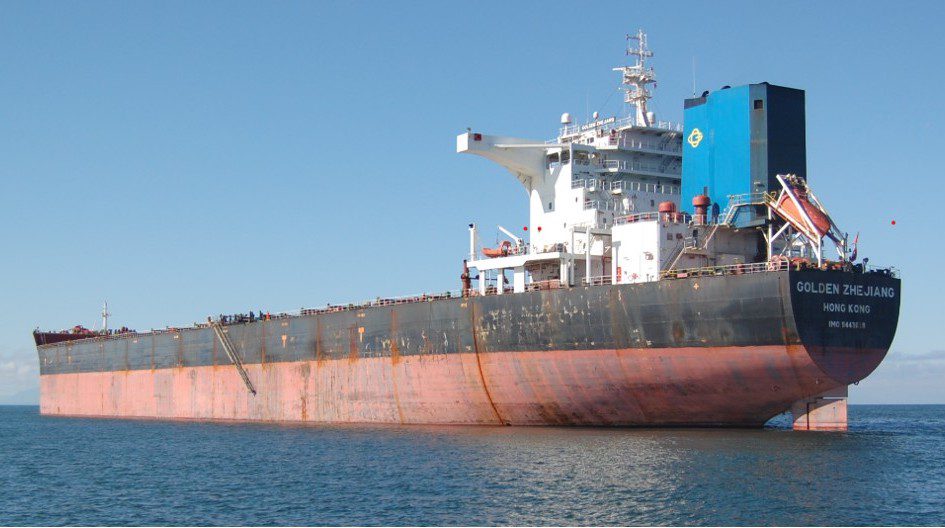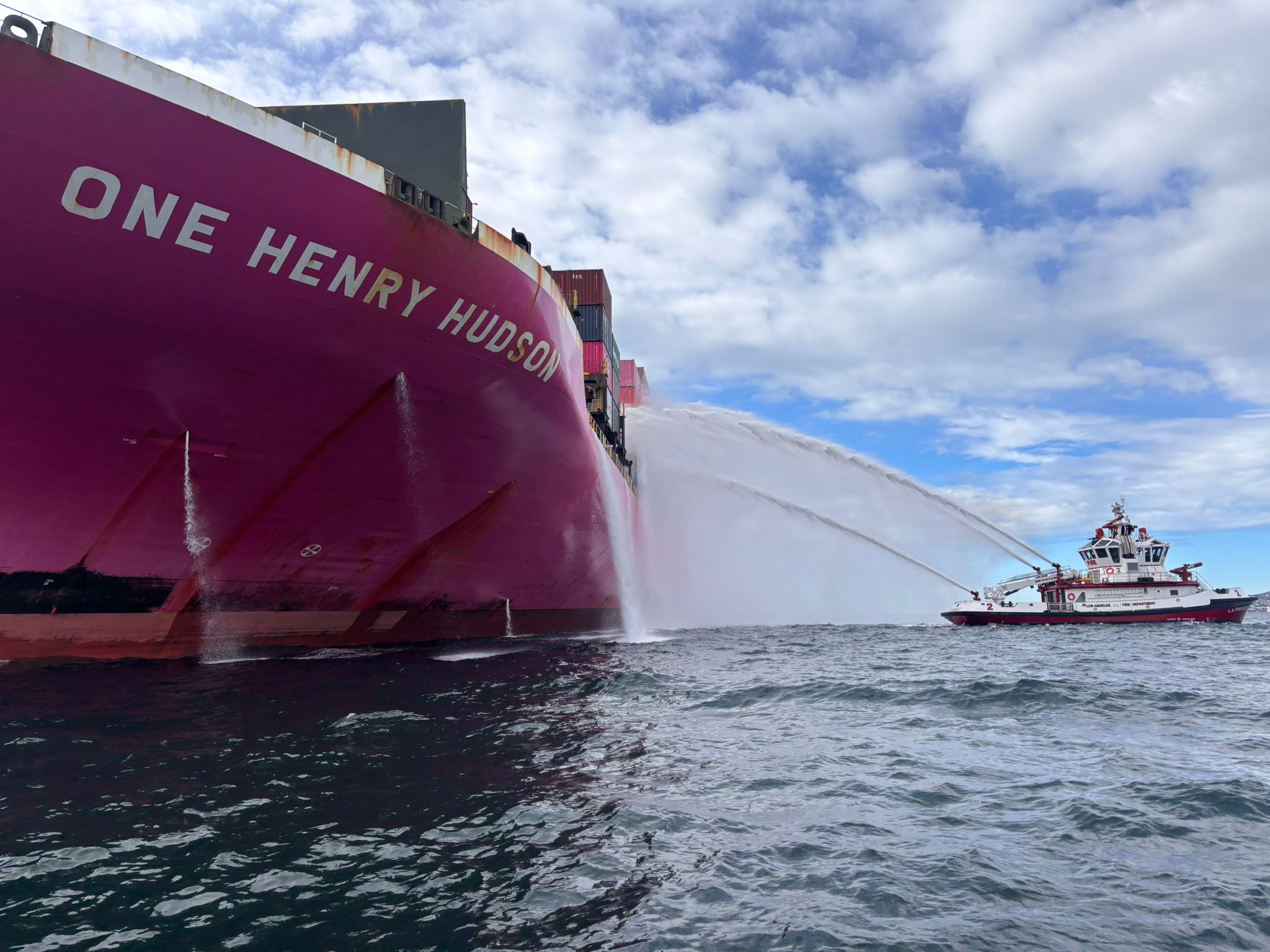The MV Rena wreckage seen in January 2012. Photo credit: LOC
The Bay of Plenty Regional Council will not make the decision to abandon the wreck of the MV Rena at Astrolabe Reef.
The Chief Executive of the Bay of Plenty Regional Council, Mary-Anne Macleod, made the announcement Friday that the Council has decided to not make the final call and will instead refer the “Application for resource consent” to abandon the wreck to the Environment Court.
The MV Rena containership ran aground on Astrolabe Reef off New Zealand’s coast in October 2011 in what has been called the worst maritime environmental disaster in the country’s history. The ship, which was carrying 1,368 containers and 1,733 tonnes of heavy fuel oil at the time of grounding, gradually broke up over the course of several months due to severe weather. Despite an exhaustive salvage effort led by Resolve Fire and Salvage and container recovery by Braemar Howells, a large debris field still remains at the wreck site.
The application for resource consent would authorize the abandonment of the remains of the Rena wreck, including its equipment, cargo and associated debris field.
“The Council has carefully considered the request by the Astrolabe Community Trust to refer the application to the Environment Court, and we have concluded it is in the best interests of the people of the Bay of Plenty that we agree to this,” Macleod said before siting a number of important reason’s for the decision.
“First, it is clear from comments made by interested parties and submitters that any decision made by the Council is likely to be appealed to the Environment Court anyway. Given the inevitability of an appeal, it makes no sense to impose duplicate costs on those submitters who wish to appear in person. Also the costs to the ratepayer would be significantly increased if the Council were to hold its own hearings, only to have to participate again at an Environment Court level.”
Macleod also announced the Council’s decision to double the amount of time provided for the Council to prepare its report to the Environment Court.
“Many of the 152 submissions received raise very complex issues which will require a substantial degree of technical analysis, and for this reason we believe we need 40 working days to prepare our report rather than the standard 20 working days.
“This is in line with our decision to double the allowable period for the filing of submissions, where we gave the public 40 days rather than 20 days to give us their views on the Application,” Macleod said.
“Even with this extension of time, the decision to refer the Application to the Environment Court will still produce a quicker result than having a two stage process,” Macleod added.
FULL COVERAGE: MV Rena Wreck

 Join The Club
Join The Club










